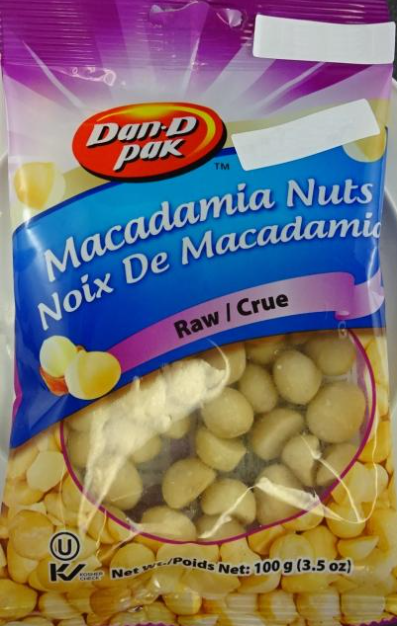Dan-D Pak brand Raw Macadamia Nuts recalled due to Salmonella in Canada
The CFIA reported that on July 18, it had recalled Dan-D-Pak nuts from the Canadian marketplace due to possible salmonella contamination. The products were sold in Alberta and British Columbia. No illnesses have been reported to the company to date associated with the consumption of the product. The recalled product is packaged in a 100 gram bag. The Canadian Food Inspection Agency is conducting a food safety investigation, which may trigger the recall of more products. @ https://recalls-rappels.canada.ca/en/alert-recall/dan-pak-brand-raw-macadamia-nuts-recalled-due-salmonella



